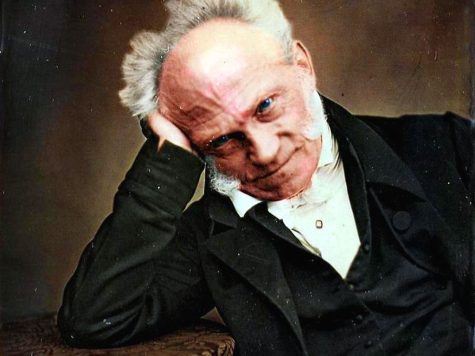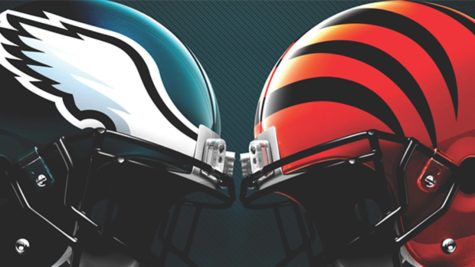Curley’s Wife: Walking a Thin Line in Red Heels (Of Mice and Men Critical Essay)
Scholastics Award Winner: Silver Key in the Critical Essay Category
January 28, 2022
When discussing the creation of characters, author Amy Tan said, “We all hate moral ambiguity in some sense, and yet it is also absolutely necessary.” Tan’s assertion that morally ambiguous characters play a key role in novels holds true in John Steinbeck’s Of Mice and Men. It is evident from her first introduction that Curley’s wife serves the literary purpose of the dangerous femme fatal, dressed in red and looking for trouble, but, as her character develops the readers’ opinions may sway. As a character, Curley’s wife walks a thin line between being hated and evoking sympathy with her talk of wasted potential and social isolation. Steinbeck includes a character like Curley’s wife to force readers to question their own morality and sense of self.
Steinbeck immediately establishes Curley’s wife’s poor reputation by having rancher Candy state, “Wait’ll you see Curley’s wife” (Steinbeck 28). From this first introduction, the reader is wary of her and the potential threat she serves to protagonist Lennie, who has a history of trouble with pretty girls. Steinbeck further conveys the rancher’s disapproval of Curley’s wife by having them describe her as a “god damn tramp” and “lousy tart” (95). The use of such harsh expressions towards the wife of a powerful figure like Curley would have been unusual for these times. The ranchers’ diction exposes their deep dislike and complete lack of respect for Curley’s wife, causing the reader to adopt a similar view. Furthermore, as if her derogatory description from the ranch workers was not enough, Steinbeck describes her as having rouged lips, red fingernails, and wearing red mules. The repeated use of red in this context symbolizes that she will bring love, danger, and violence to the ranch. Ultimately, Steinbeck quickly reveals Curley’s wife’s reputation to make it easy for the reader to identify her as a villain and threat.
Curley’s wife’s total abuse of Crooks, the black stable buck, through the weaponization of racial slurs and norms cements her vilification. After entering Crook’s room without an invitation and almost immediately being told to leave, Curley’s wife goes on a rampage, insulting every man present. During this tear, she repeatedly uses the n-word to demoralize, humiliate, and sneer Crooks. (78-81) Though Curley’s wife’s use of the n-word is not unusual given the historical context, through a modern reader’s eyes, her actions are disgusting. Curley’s wife furthers her tirade by threatening Crooks: “I could get you strung up on a tree so easy it ain’t even funny” (81). Curley’s wife is referring to lynching, a common punishment for black people if they were accused of a crime. Often black men and women would be lynched without trial and sometimes without a reason besides their skin color. Curley’s wife’s condoning of lynching and threats towards Crooks demotes her from unlikeable to vile in the reader’s eyes. Finally, after Curley’s wife has decimated any confidence or pride Crooks might have held, she states, “You keep your place then.” (80) Curley’s wife’s words give insight into social norms that were present during the 1930s. To many people at the time, a black person’s “place”, no matter how powerful or wealthy they were, was always below a white person. All in all, Curley’s wife’s racist and disturbing behavior solidifies her characterization as a villain.
Curley’s wife’s earnest conversation with Lennie, including the sharing of her deepest secrets, leaves readers questioning if she is as horrific as they initially thought. Lennie confides in Curley’s wife about how he had accidentally killed his puppy, and in return, she tells him of how she wanted to be an actress. Curley’s wife talks of a man who called her a “natural” (88) when it came to acting and promised to write her as soon as he returned to Hollywood. She admits to Lennie that she “never got that letter.” (88) Whether her silver screen aspirations had merit or were just pipedreams, this is the first time Curley’s wife shows any sense of nostalgia or heartache. At this point, the reader starts to consider that maybe Curley’s wife’s behavior is rooted in her own unhappiness with her life. To further prove this point, Curley’s wife then goes on to share her marital problems with the pugnacious Curley. She first describes her forced social isolation, stating, “I can’t talk to nobody but Curley. Else he gets mad.” (87) This statement reveals just how controlling, and over-protective Curley is. This is also the first time that a reader sees Curley’s wife as a victim instead of the villain. Curley’s wife continues; “I don’t like Curley. He ain’t a nice fella.” (89) It is not until this line that the reader finally understands the depth of Curley’s wife’s despair and unhappiness. Suddenly, readers realize Curley’s wife’s outbursts and brutal assaults are likely a result of her feelings of impaired freedom and fear of her spouse. In summary, due to her confessing her deepest secrets, readers see a different side of Curley’s wife and even start to sympathize with her.
In her initial portrayal, Curley’s wife lacked dimension, empathy, and was generally devoid of any likable traits. However, as her backstory thickens and insights into her relationship with Curley are gained, readers of Steinbeck’s Of Mice and Men began to realize her despicable actions may come from a place of deep hurt and isolation. Suddenly the readers may find themselves trying to justify the actions of a character they were comparing to the devil two chapters ago. But why? Because she is hauntingly relatable. Though most do not like admitting it, taking one’s own emotions and frustrations out on others is a common human phenomenon. Steinbeck critiques this flaw by making readers deeply loathe Curley’s wife, then cruelly forcing them to see the similarities between themselves and her. In conclusion, Steinbeck includes the character of Curley’s wife in his novel Of Mice and Men as a rude awakening, forcing readers to examine their own sense of self and morality.











